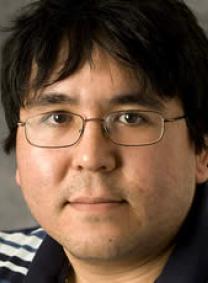Ali Hortaçsu Awarded Koç University Rahmi M. Koç Medal of Science
The U Chicago economist’s work has focused on assessing the efficiency of markets.
By Sarah Steimer
“It's easy to get lost in the day-to-day struggle of getting things done, papers written, data analyzed, and responding to people's comments,” says Ali Hortaçsu, the Ralph and Mary Otis Isham Professor in Economics. “But sometimes it's important to take a step back and say, ‘Okay, what's this all for?’”
One such opportunity for reflection came by way of an award from his home country: Hortaçsu is this year’s recipient of the Koç University Rahmi M. Koç Medal of Science. The award recognizes individuals of Turkish origin younger than 50 years old who have demonstrated outstanding success and significant progress in their field. The recipient is chosen by a special panel of academic experts and is awarded in alternating years between two fields: science, engineering, and health sciences; and administrative sciences, social sciences, humanities, and law.
Born and raised in Istanbul, Hortaçsu is the son of two engineering professors. He came to the U.S. to attend Stanford University as an electrical engineering undergrad. But after taking courses in economics, he felt himself pulled toward that field instead. He continued on at Stanford, receiving his PhD in economics in 2001. He’s a member of the American Academy of Arts and Sciences and a fellow of the Econometric Society.
Much of his work has centered on how market mechanisms work and how they can work better. Hortaçsu’s early research was on auction mechanisms, or ways to set prices or discover prices. He and his co-authors wrote some of the earliest papers on internet auctions — including Ebay — in terms of their design, but also issues of trust or reputation mechanisms that help regulate trade between anonymous parties across long distances.
Hortaçsu has spent considerable time studying the use of different market mechanisms in financial markets, in particular the auctioning of government debt. He worked on the problem of how to design the auction mechanism that allows the U.S. government to refinance its debt, which involves running an auction where banks give different bids on interest rates when issuing bonds.
He’s worked closely with the European Central Bank on how monetary policy should be implemented through auctions. And in the U.S., he’s also done work on energy markets, focusing on the strategic behavior of generators, such as whether they withhold supply at key moments to inflate the prices. He’s offered guidance to central banks, tech companies, and others as it relates to market mechanisms.
His articles have appeared in publications including the Journal of Economic Perspectives, American Economic Review, Review of Financial Studies, Econometrica, American Economic Review, Journal of Political Economy, and International Journal of Industrial Organization.
Hortaçsu notes the impressive resumes of past winners — which includes fellow economist Daron Acemoglu of the Massachusetts Institute of Technology — and what an honor it is to be in their company. “It's good to be recognized by one's home country as having contributed to science,” he says. “It also encourages me to work further with scientists, people in my discipline in Turkey and to strengthen my ties there. I think that's a big function of the award. It made me really think about what I have done and where I should go next.”
 THE UNIVERSITY OF CHICAGO
THE UNIVERSITY OF CHICAGO


